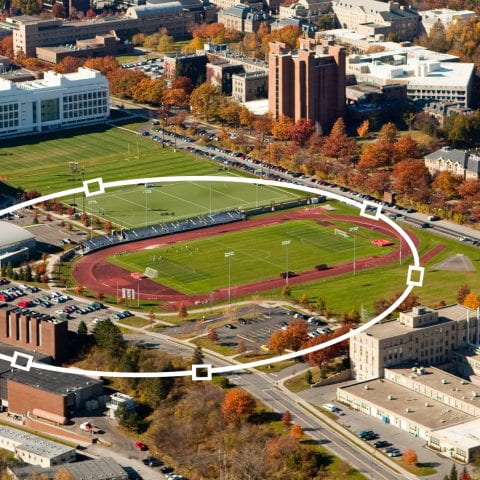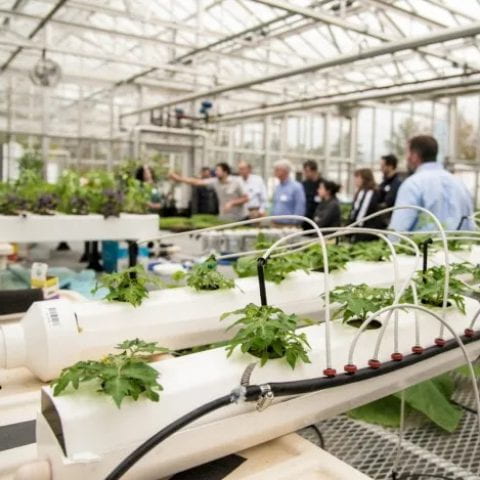Agenda
Welcome to the PALSA 2023 Agenda and Description Overview. See below for a description of the workshop and each of PALSA’s main session themes. For up-to-date schedule information and speaker times as details are settled, please see our detailed agenda.
PALSA 2023 At A Glance:
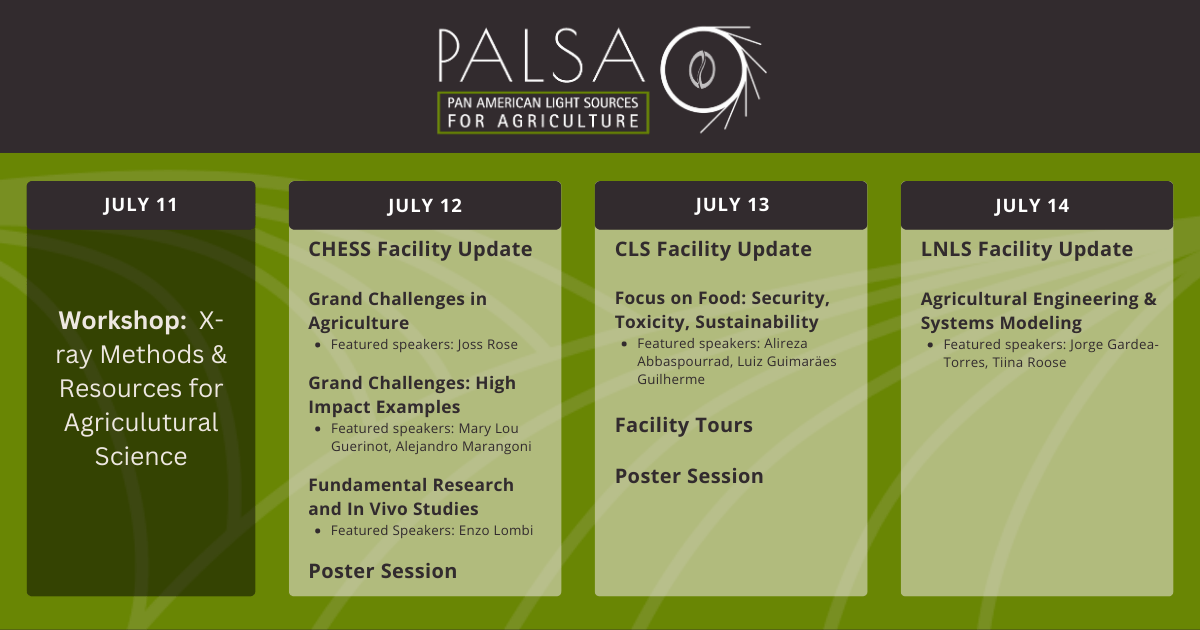
Agenda Overview
We are excited to announce that PALSA 2023 will now include a workshop, “X-ray Methods & Resources for Agricultural Science”, to take place on July 11th, the day prior to the main program on July 12th-14th. The workshop will feature a slate of technique and facility experts providing a program of tutorials on techniques and descriptions of state-of-the-art facilities. Watch this space for additional updates and details!
PALSA 2023 is organized along four themed sessions listed below, each of which will feature both invited and contributed talks. Poster sessions on Wednesday July 12th and Thursday the 13th will provide additional opportunities for researchers to meet and interact. Thursday’s rich program will include opportunities to tour the Cornell High Energy Synchrotron Source as well as the resources associated with Cornell’s many programs in Plant, Agriculture and Food Sciences, and special programming for Industry representatives seeking to engage with Cornell’s many programs and faculty engaged in plant, agriculture, and food sciences. Please contact Greg Ray (gpr36@cornell.edu) for further information on Industrial Engagement.
Theme 1: Grand Challenges in Agriculture
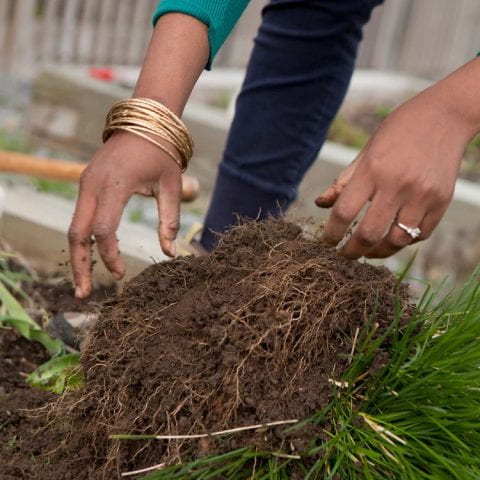 How will we feed a growing global population in the face of climate change, ensuring everyone has access to a secure, nutritious food supply? We will open the PALSA 2023 meeting by hearing from leaders in agricultural sciences, including Professor Joss Rose, Director of the Cornell School of Integrative Plant Sciences, who will help us frame the topics, presentations and conversations for the following days.
How will we feed a growing global population in the face of climate change, ensuring everyone has access to a secure, nutritious food supply? We will open the PALSA 2023 meeting by hearing from leaders in agricultural sciences, including Professor Joss Rose, Director of the Cornell School of Integrative Plant Sciences, who will help us frame the topics, presentations and conversations for the following days.
Part two of this session will provide examples demonstrating the critical role synchrotron-based techniques play in responding to the grand challenges described in part one. We will hear from Mary Lou Guerinot, Ronald and Deborah Harris Professor in the Sciences at Dartmouth College, whose early work using synchrotron imaging methods to study how genetic changes affect nutrient homeostasis in plants paved the way for a host of new research questions to be asked and answered. We will also hear from Alejandro Marangoni, Canada Research Chair in Food, Health and Aging at the University of Guelph, whose research linking synchrotron characterization of fat crystallization microstructure to physical properties of food, has wide impacts including reducing saturated fats in processed foods, engineering chocolate, and developing novel plant-based meat and cheese substitutes.
Theme 2: Fundamental Research and In Vivo Studies
Learn how the world’s top researchers are using synchrotron measurements to not only understand plant growth – but how to develop high-nutrient plants that thrive in poor soils and are resilient to climate stresses. This session will include Enzo Lombi, Barbara Hardy Chair in Environmental Science & Engineering at the University of South Australia, whose forefront research has included in-vivo synchrotron measurements of metals in plants.
Theme 3: Focus on Food: Security, Toxicity, and Sustainability
Ensuring a safe and reliable food supply while reducing environmental impacts is a critical global challenge. This session features invited talks from Luiz Roberto Guimarães Guilherme, from the Federal University of Lavras (Brazil), whose research includes a focus on movement of metals through soils and their accumulation in edible plants. We will also hear from Alireza Abbaspourad, Yongkeun Joh Associate Professor of Food Chemistry and Ingredient Technology at Cornell University, whose research in soft matter spans engineering new materials for food applications such as encapsulation, supplements, and stabilizing natural food safe dyes, as well as or using food and agricultural waste to produce value added products such as bioplastics.
Theme 4: Agricultural Engineering and Systems Modeling
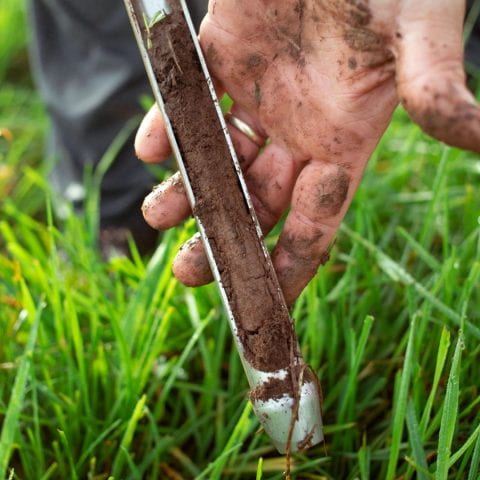
Learn how researchers are using synchrotron methods to inform fundamental models of complexagricultural systems for predictive insights. We will hear from Tiina Roose, from the University of Southampton, who will describe her work developing a quantitative model of soils and soil-root interactions based on fusion of chemical and structural imaging methods, and discuss how image-based modelling can help researchers understand plant bacterial diseases. We will also hear from Jorge Gardea-Torresdey, Dudley Professor of Chemistry and Environmental Science & Engineering at the University of Texas at El Paso, to discuss his research on nanoparticle interactions with crop plants and implications for the future of nano-agrochemicals.


